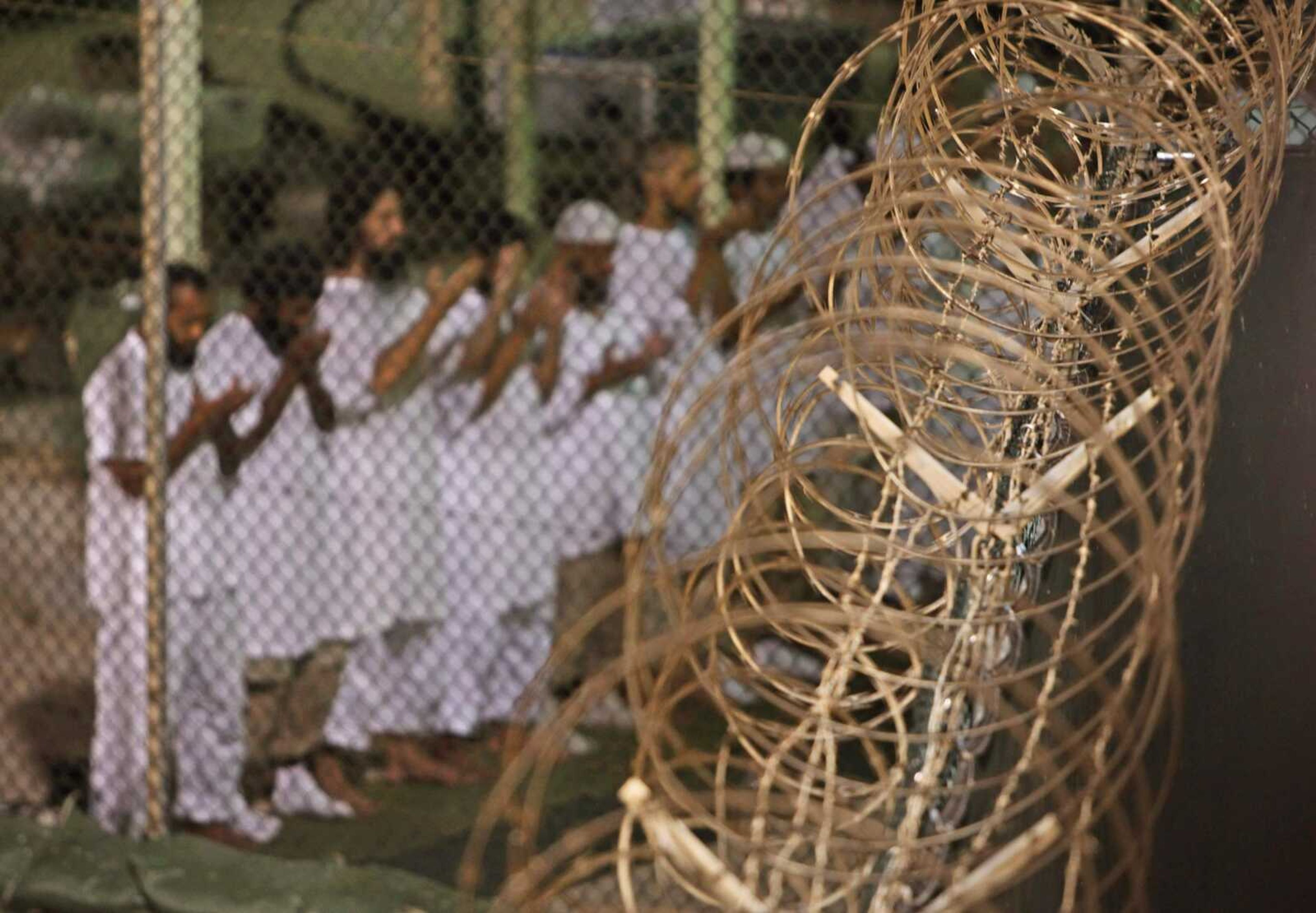Fewer than 100 Guantanamo prisoners left as 10 leave to Oman
MIAMI -- Ten prisoners from Yemen who were held at Guantanamo Bay, Cuba, have been released and sent to the Middle Eastern nation of Oman for resettlement, officials said Thursday, portraying it as a significant milestone in the long-stalled effort to shutter the detention center...
MIAMI -- Ten prisoners from Yemen who were held at Guantanamo Bay, Cuba, have been released and sent to the Middle Eastern nation of Oman for resettlement, officials said Thursday, portraying it as a significant milestone in the long-stalled effort to shutter the detention center.
The release, among the largest on a single day under President Barack Obama, puts the prison population below 100 for the first time since shortly after it opened in January 2002 to hold men suspected of links to al-Qaida and the Taliban. It still holds 93.
Lee Wolosky, the State Department's special envoy for Guantanamo Closure, said the U.S. expects to transfer the remaining prisoners who are cleared to leave -- about a third of the total -- by summer.
Guantanamo held nearly 680 prisoners at its peak in 2003 and about 245 when Obama took office, pledging to close it as a symbol of overreach in the war against terrorism and a needless propaganda symbol for enemies of the United States.
Defense Secretary Ash Carter announced the release of the Yemenis at a change-of-command ceremony in Miami at U.S. Southern Command, which oversees Guantanamo.
He said the administration would submit a plan to Congress, where many want to keep the prison open, to move those who can't be freed to a facility within the United States.
"Not everyone in Gitmo can be safely transferred to another country, so we need an alternative," Carter said, using a common abbreviated name for the base on the southeastern edge of Cuba.
A White House official confirmed Obama's national security team recently received a new version of the plan and was making final revisions.
Marine Gen. John F. Kelly, who turned over leadership of Southern Command to Navy Vice Adm. Kurt W. Tidd at Thursday's ceremony, said before the event the military still would need a place to hold captured detainees indefinitely, but he conceded as the population dwindles, "Guantanamo will probably close sooner rather than later."
The 10 men who left Guantanamo late Tuesday were among several dozen from Yemen who could not be sent back to their homeland, which is embroiled in a civil war.
All were deemed low-level enemy combatants and cleared for transfer since at least 2010.
The prisoners included one who was 17 when captured and another the government conceded had served only briefly as a Taliban medic. None ever was charged.
David Remes, a lawyer for three of the men, said two, Mukhtar al Warafi and Saeed Hatim, got down on their knees and prayed in December when they learned they would be released.
The third, Fahmi Ahmed, at first wasn't sure whether to believe it and wanted proof when he got word this week.
"The men learned to lower their expectations and indeed to have no expectations so that everything good is a surprise," Remes said in a phone interview from the base. "But this was a joyful surprise."
Sen. Kelly Ayotte, a prominent advocate for keeping the detention center open, criticized the decision to transfer the men to Oman, which borders their homeland along the Arabian Sea.
Congress has prohibited the transfer of any Guantanamo detainees to Yemen, as well as to the United States, a law the White House is seeking to change.
"Any Obama administration decision to transfer a large number of Yemeni detainees from Guantanamo to Oman would represent a thinly veiled attempt to undercut the will of Congress and would further endanger the American people," Ayotte said.
Carter said the decision to resettle the men in Oman was made only after a thorough security review.
Ian Moss, chief of staff to the State Department's special envoy, said it would be wrong to continue holding men just because of their Yemeni nationality.
Connect with the Southeast Missourian Newsroom:
For corrections to this story or other insights for the editor, click here. To submit a letter to the editor, click here. To learn about the Southeast Missourian’s AI Policy, click here.









